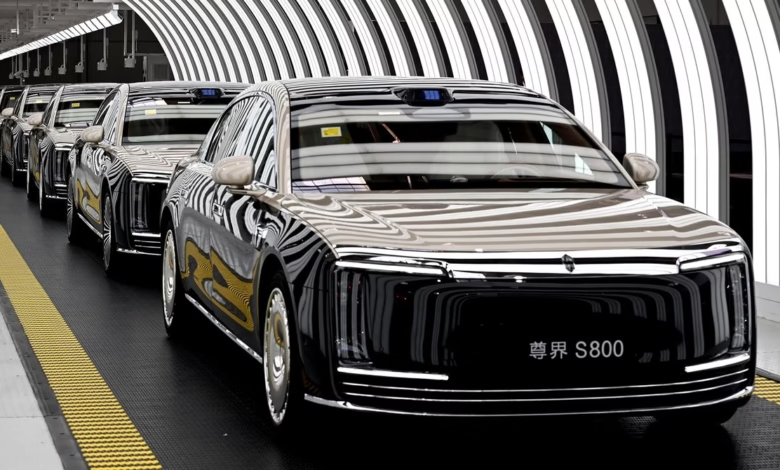Chinese Cities Offer Exclusive Subsidies for Huawei-Powered Cars

▼ Summary
– Some Chinese local governments are offering cash subsidies (2,000-5,000 RMB) for purchasing electric/hybrid cars running Huawei’s HarmonyOS and autonomous driving systems.
– China previously phased out national EV subsidies in 2021, but these new incentives uniquely favor a single company’s technology.
– Experts note that direct consumer cash subsidies by local governments are unusual, especially amid economic constraints and Beijing’s restrictions on aiding private firms.
– The funding source for these subsidies is unclear, with some announcements suggesting Huawei or its partners—not governments—are covering the costs.
– The subsidies risk blurring Huawei’s claimed independence from the government, as competitors aren’t receiving similar preferential treatment.
Several Chinese cities are rolling out special incentives for drivers who purchase electric vehicles equipped with Huawei’s advanced software systems. These localized subsidies, ranging from 2,000 to 5,000 RMB ($280 to $700), apply exclusively to cars running Huawei’s HarmonyOS and autonomous driving technology, a move that industry analysts describe as highly unusual.
Unlike past nationwide electric vehicle (EV) subsidies, which were phased out in recent years, these incentives target a specific tech provider. While China’s government has historically supported EV adoption through broad policies, direct financial perks tied to a single company’s technology are unprecedented. The subsidies appear in at least 10 regions, though the funding sources remain unclear in many cases.
Local governments often back domestic automakers through policy support or fleet purchases, but cash rebates for consumers linked to a particular brand’s software are a new development. Given China’s current economic challenges, the subsidies stand out even more, as regional authorities face budget constraints and stricter limits on corporate support.
Some announcements clarify that the discounts aren’t government-funded. For instance, Yunnan’s commerce department stated that the subsidies come from sales companies affiliated with Huawei’s Harmony Intelligent Mobility Alliance. Similar wording appears in notices from Guangzhou and Inner Mongolia’s Hulunbuir, suggesting the tech giant or its manufacturing partners may be footing the bill.
The ambiguity raises questions about Huawei’s relationship with local governments. Though the company emphasizes its independence from state influence, these subsidies create the perception of preferential treatment. Whether the funding comes from Huawei, its partners, or a mix of sources, the exclusive nature of the deals has drawn attention in an increasingly competitive EV market.
Since U.S. sanctions reshaped Huawei’s business strategy, the firm has aggressively expanded into smart automotive solutions. These subsidies could further solidify its position in China’s EV sector, while leaving rival automakers and tech providers at a potential disadvantage.
(Source: Wired)





